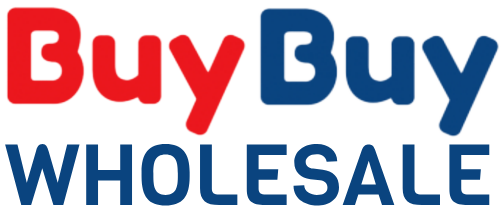Understanding Wholesale Pricing: What It Means and How It Works
Wholesale pricing refers to the cost at which goods are sold in large quantities directly from manufacturers or suppliers to wholesalers or retailers. This price is significantly lower than the retail price, which is the amount consumers pay when purchasing products from retail stores. The primary difference between wholesale and retail pricing lies in the volume of goods sold; wholesale transactions typically involve bulk purchasing, whereas retail transactions cater to individual consumers.
The supply chain process in wholesale pricing begins with the manufacturers producing goods. These goods are then sold to suppliers who distribute them to wholesalers. Wholesalers purchase products in large quantities, allowing them to secure lower prices. Finally, retailers buy from wholesalers and sell the products at a higher retail price to end consumers. This multi-step process ensures that each participant in the supply chain earns a profit while maintaining a steady flow of goods from production to consumer purchase.
One of the primary advantages of buying products at wholesale prices is cost savings. By purchasing in bulk, businesses can reduce the per-unit cost of goods, leading to significant savings over time. This is particularly beneficial for retailers who can improve their profit margins by selling items at retail prices. Additionally, bulk purchasing offers the advantage of stocking up on inventory, which is crucial for businesses that need to meet consistent consumer demand.
Various types of businesses and individuals benefit from wholesale purchasing. Retailers, small business owners, and event planners often rely on wholesale prices to maximize their budgets. For instance, a retailer can purchase electronics, clothing, or groceries in large quantities at wholesale prices and then sell them to consumers at a markup. Small business owners may buy office supplies or raw materials in bulk to reduce operational costs. Event planners can acquire decorations, food, and other essentials at wholesale prices, allowing them to organize events more cost-effectively.
Common products often purchased at wholesale prices include electronics, clothing, and groceries. Electronics such as smartphones, laptops, and accessories are frequently bought in bulk by retailers to meet consumer demand. Clothing retailers benefit from purchasing large quantities of apparel at reduced prices, enabling them to offer competitive pricing to customers. Groceries, including non-perishable items and household staples, are also popular wholesale purchases, allowing businesses to maintain a steady stock of essential goods.
How to Access Wholesale Prices: Tips and Strategies
Accessing wholesale prices can significantly benefit both consumers and businesses by offering substantial cost savings. To begin, consider joining wholesale clubs, such as Costco or Sam’s Club, which provide members with access to a wide range of products at wholesale prices. Membership fees are typically required, but the potential savings often outweigh this initial cost. Additionally, visiting wholesale markets can be a valuable strategy. These markets, often found in major cities, offer a variety of goods at lower prices, enabling you to purchase products in bulk.
Online wholesale platforms have revolutionized the way consumers and businesses access wholesale prices. Websites like Alibaba, DHgate, and Global Sources offer extensive catalogs of products from suppliers worldwide. When using these platforms, it’s essential to meet minimum purchase requirements, which can vary significantly. Moreover, negotiating better deals with wholesalers can lead to even greater savings. Learning the art of negotiation and building strong relationships with suppliers can yield favorable terms and discounts.
Establishing relationships with reliable suppliers is crucial to ensure consistent product quality and supply. Understanding their terms and conditions, including payment terms, return policies, and delivery schedules, is essential. It’s also important to spot genuine wholesale deals and avoid scams. Research suppliers thoroughly, read reviews, and verify their credentials before making any transactions.
Attending trade shows and industry events can provide excellent opportunities to connect with wholesalers and discover new products. These events allow you to meet suppliers face-to-face, negotiate deals, and stay updated on industry trends. Participating in such events can also help you establish valuable connections and gain insights into the wholesale market.
While accessing wholesale prices offers numerous advantages, it’s important to consider legal and logistical aspects. Ensure you have the necessary licenses and permits to purchase wholesale goods, especially if you intend to resell them. Additionally, factor in shipping costs and logistics to avoid unexpected expenses. By following these tips and strategies, you can effectively unlock the benefits of buying all products at wholesale prices, leading to substantial savings and business growth.
